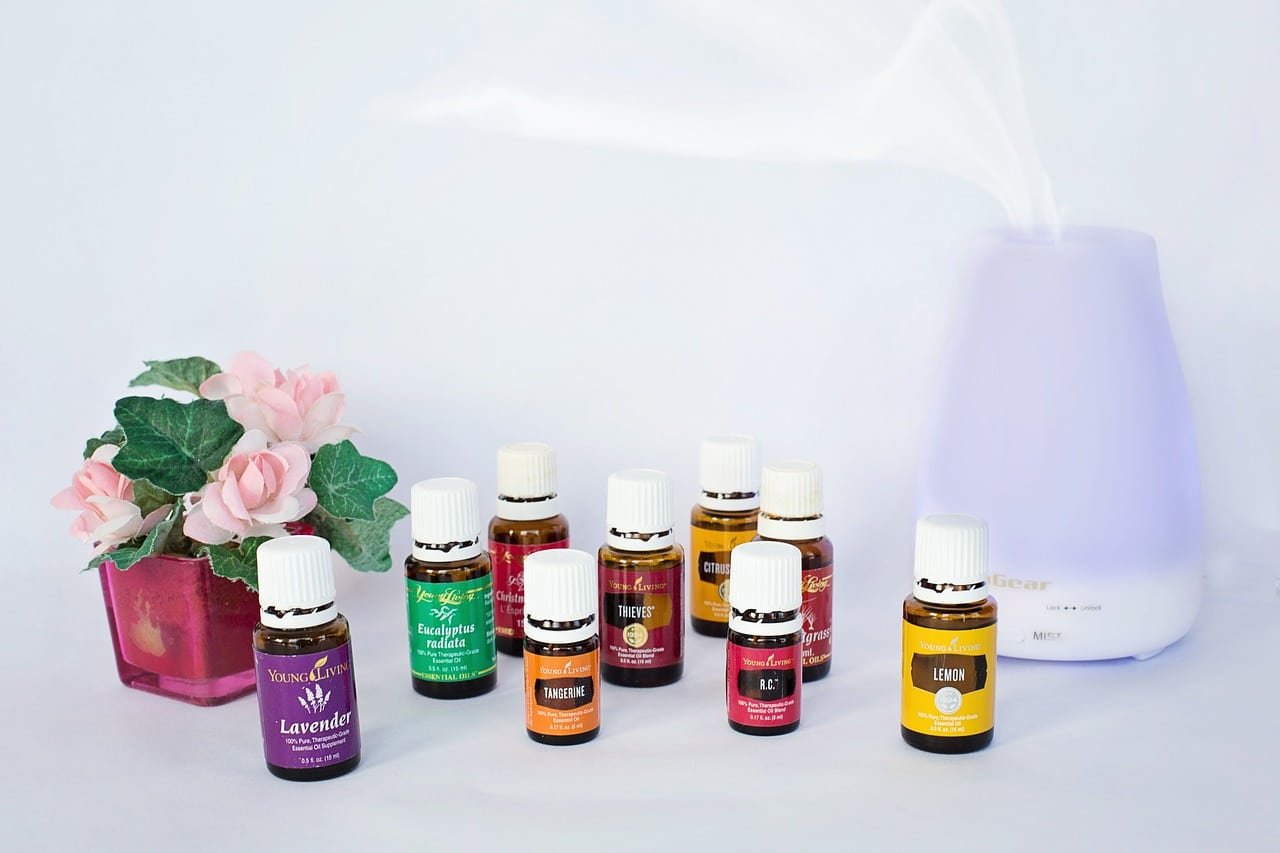Diffusing essential oils throughout your home will make your home smell wonderful and will also help you relax after a stressful day. However, if you own a cat, you may want to avoid using essential oils altogether, as most have been found to be highly toxic to pets.1
Unfortunately, most essential oils are dangerous to cats, and none are safe. Therefore, we will give you some tips about the necessary requirements to use them at home. We’ll explain which oils are the most dangerous and what signs to look out for if your cat is suffering from any negative effects. We all want your cat to be safe and healthy.

What exactly are essential oils?
Essential oils are extracts made from plants by pressing or steaming, but not all plants produce essential oils. Oils can be extracted from flowers, leaves, bark, peel, roots, and fruits and are concentrated to preserve the plant’s natural taste and aroma.
Essential oils are usually combined with a carrier oil (an oil used as a base, such as jojoba oil or almond oil) and are often used in aromatherapy. They are not intended to be ingested and are usually applied to the skin or dispersed as an aerosol and are thought to have benefits for physical and mental health.
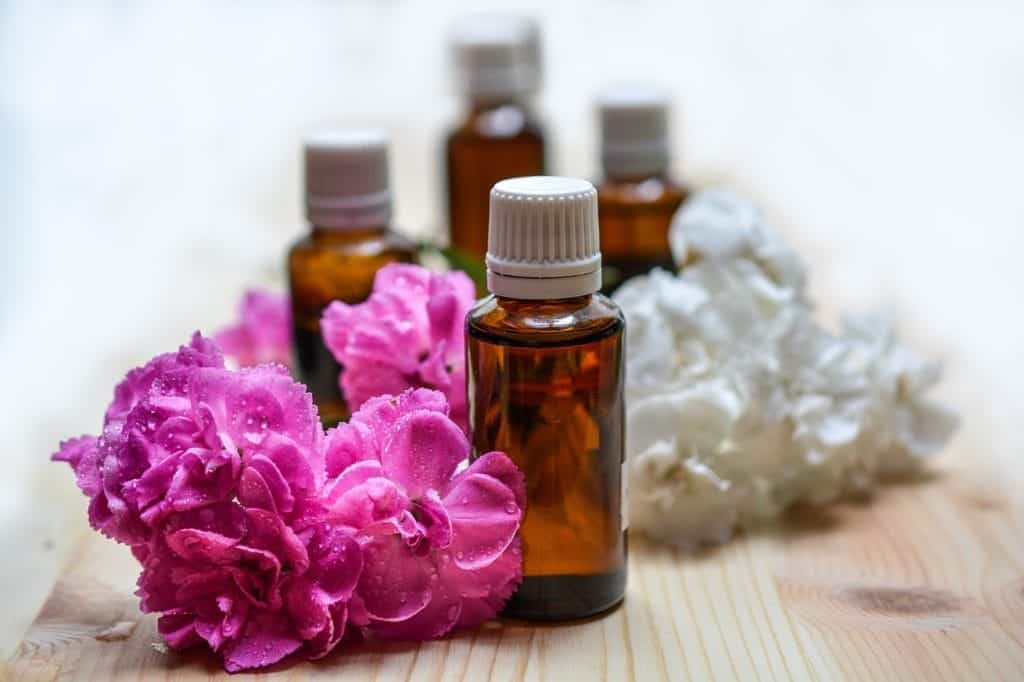
Why cats and essential oils don’t mix
Cats have a lower number of certain enzymes in their liver, while others are completely absent, which reduces the ability of the metabolic pathways that metabolize and eliminate certain drugs, drugs, and most essential oils. It has a significantly slower metabolic pathway.
Additionally, cats are highly sensitive to phenols and salicylic acids, compounds found in many essential oils. Therefore, the higher the concentration of essential oil (100% is quite high), the more toxic it is to cats.
What are the most dangerous essential oils?
There are a number of essential oils that are known to be highly toxic to cats, most of which will cause signs of poisoning if ingested (often through grooming), absorbed through the skin, or inhaled.
These essential oils include:
dangerous essential oils
- tea tree oil
- clove oil
- ylang ylang oil
- pine oil
- penny royal oil
- cinnamon oil
- peppermint oil
- wintergreen oil
- eucalyptus oil
- thyme oil
- sweet birch oil
- basil oil
- Citrus oils (especially d-limonene)
Tea tree oil in particular can be very harmful to cats. These oils are used for various purposes. They are used in personal care products, herbal remedies, pesticides, potpourri (liquid), and in distillers.
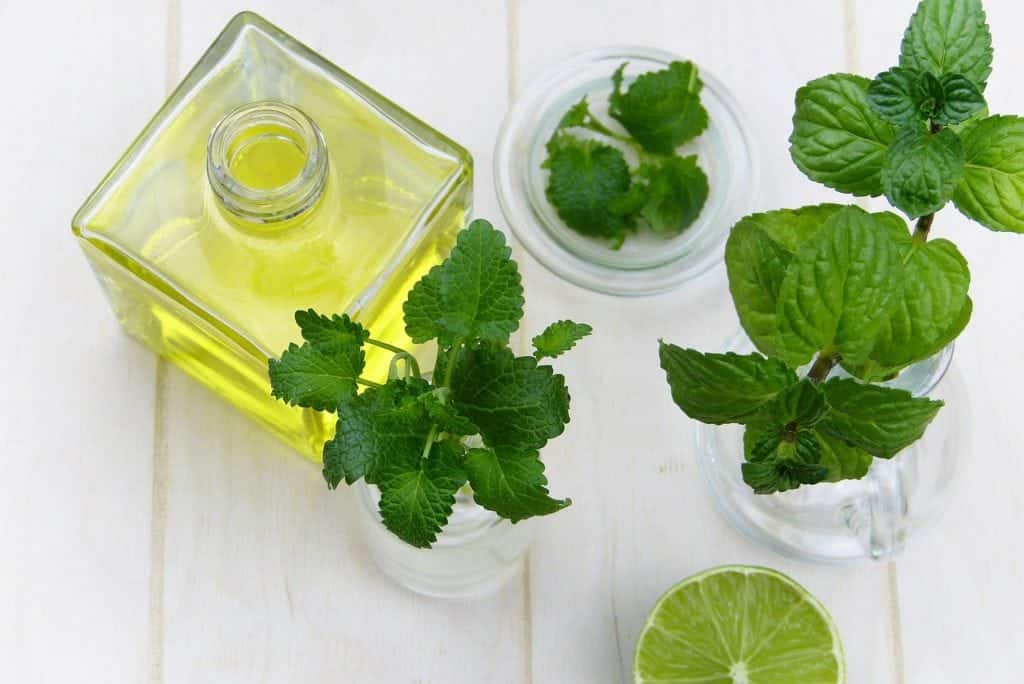
Signs of essential oil poisoning
Signs of essential oil poisoning will vary depending on how much oil your cat was exposed to and whether they ingested or inhaled the toxic substance.
Signs may include:
- vomiting
- low heart rate
- painful breathing
- gasping, coughing, wheezing
- Wobbling and staggering
- trembling
- drool
- liver failure
- hypothermia
- watery nose and eyes
- Burning sensation in the nose and throat
- skin burns
If your cat has been around essential oils and ingested or inhaled it, or if they start showing any of these signs, take them to your veterinarian immediately. Time is of the essence.
essential oils safe for cats
Unfortunately, there are no essential oils that are considered safe to use around cats. Some have lower concentrations and are less likely to cause signs of toxicity, but they should not be used around cats. Even a few licks or even a small amount on the skin can be very harmful.
Less toxic essential oils that should still be avoided around cats include:
Although these essential oils are not as harmful as other essential oils, care should be taken when using them in the home. Keep only a faint scent and never touch the cat. Do not apply directly to your cat’s skin or allow your cat to ingest or inhale it. Keep cats away from rooms where essential oils are being used. Please note that these oils may be less irritating and toxic than the first group of essential oils, but they can cause harmful signs when in contact with cats.
How to use essential oils safely
If you still want to use essential oils at home, there are safe ways to do so. Some tips include:
- Use the diffuser for short periods of time in areas inaccessible to cats.
- If your cat suffers from a respiratory disease (asthma), avoid using essential oils completely.
- Store the bottle and diffuser in a safe place out of reach of your cat to avoid accidental spillage or ingestion.
- Make sure the essential oil does not contain any extra ingredients or chemicals that could be toxic to your cat.
- Avoid touching your cat and wash your hands thoroughly after handling essential oils.
- Do not use undiluted essential oils for cleaning. Cats like to rub on everything, and it can easily rub against their fur or land on their paws.
- Use only safe oils listed and make sure they are very diluted with a subtle scent.
- Keep your cat away from the diffuser. If you use a reed diffuser, plug diffuser, or essential oil sprayer, keep your cat away from those areas of your home.
- Make sure the room is well ventilated before you let your cat back in.
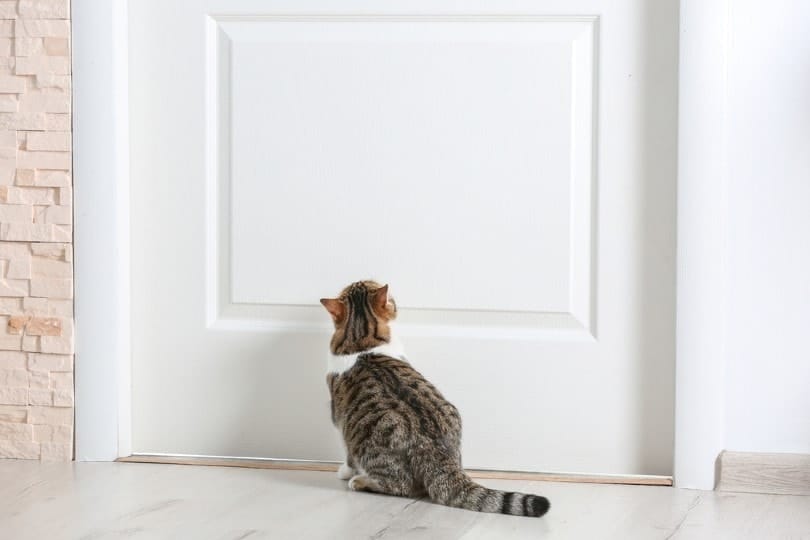


use a diffuser
As already mentioned, essential oils are not safe for cats and should not be used around cats. The safest option is to find other types of aromatherapy or relaxation that do not pose a risk to your cat’s health. However, based on our tips, we will also briefly explain the types of diffusers for cat owners who want to find a balance by using the diffuser only occasionally and at a safe distance from the cat.
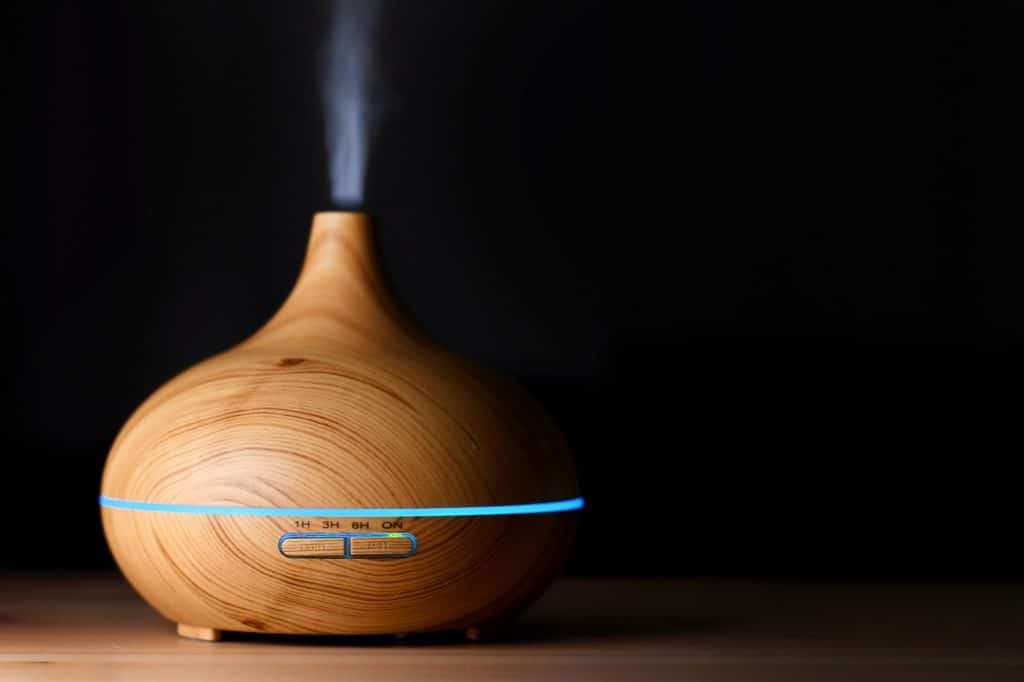
These types of passive diffusers work by evaporating oil.
electric diffuser
Electric diffusers use a small fan to blow air through a pad or filter soaked with essential oils.
reed diffuser
Place the reed (usually wicker reed) in a glass container with a mixture of essential oils and base oils (such as jojoba oil). The reeds absorb the oil and the scent evaporates into the air.
heat diffuser
These diffusers use heat to disperse scents into the air. This can be achieved using plug-ins or electric diffusers, tabletop warmers, and candle burners.
personal diffuser
You can create your own diffuser with a necklace or bracelet pendant that includes a pad infused with essential oils. If you have a cat, we do not recommend this because while you are wearing the diffuser, you may forget that your cat is there and snuggle up to it, exposing you to harmful oils.
active diffuser
Active essential oil diffusers work by releasing microdroplets or particles of actual oil into the air in addition to a pleasant scent. Nebulizing diffusers and ultrasonic diffusers fall into this category.
The droplets dispersed by these new diffusers may be small, but they still pose a risk to cats if they swallow them or get them on their skin. If your cat is in the same room as an active diffuser, microdroplets of essential oil can fall onto your cat’s fur. This oil can be absorbed directly through the skin or ingested during cat grooming.

some warnings
Passive diffusers emit scents, but not actual oils. However, the diffuser should be placed where your cat cannot reach it, preferably in a separate room. If she accidentally (or maybe intentionally, as I know cats) knocks over her diffuser and her oil gets on her, she will lick the oil off her fur and it will make her very will make you feel sick. If you think this is the case, contact your veterinarian immediately.
Scented diffusers can also cause respiratory irritation in cats, even if passively. If your cat inhales fragrances, the following symptoms may occur:
- Watery eye
- snot
- Burning sensation in the nose and throat
- gasping and rapid breathing
- difficulty breathing
- cough
- wheezing
As soon as you notice these signs, get your cat out to fresh air and contact your veterinarian. If you don’t see immediate improvement, take your dog to the vet right away.
If your cat already has a respiratory disease such as allergies or asthma, he or she will be much more susceptible to severe respiratory irritation than other cats. In such cases, you may want to reconsider using a diffuser.
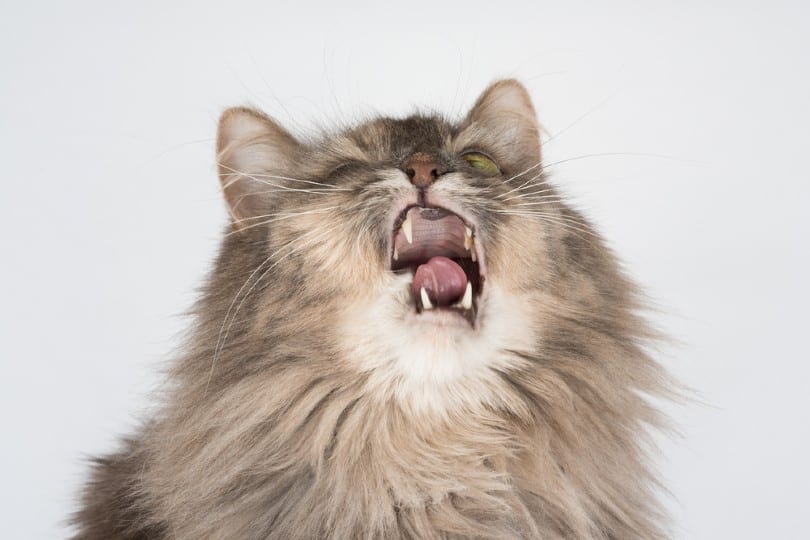
Some notes at the end
If you decide to use a diffuser despite the risks it poses to your cat’s health, first follow our recommendations and make sure the essential oils are well diluted. Adding water allows you to enjoy a subtle scent while minimizing risk to your cat.
When using the diffuser, make sure cats are not present and limit their access to this area or room. Do not confine your cat to an area with a diffuser containing essential oils.
Finally, consult your veterinarian before using a diffuser. Discuss the oils, active ingredients, and actual diffuser you use, and follow any advice given.


conclusion
Even if you are careful and take all the necessary precautions, using diffusers containing essential oils unfortunately always poses a significant risk for your cat. If you have any concerns or questions regarding essential oil diffusion, please consult your veterinarian. Of course, we all want to feel calm and live in a home that smells nice, but the safety and health of our cats is paramount. This means treating your cat’s health first and carefully.
Featured image credit: Pixabay

